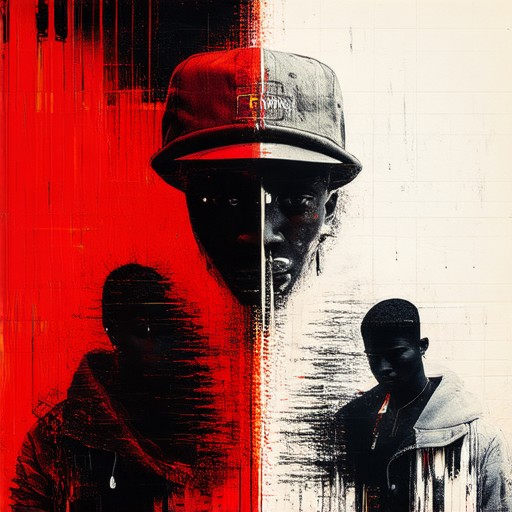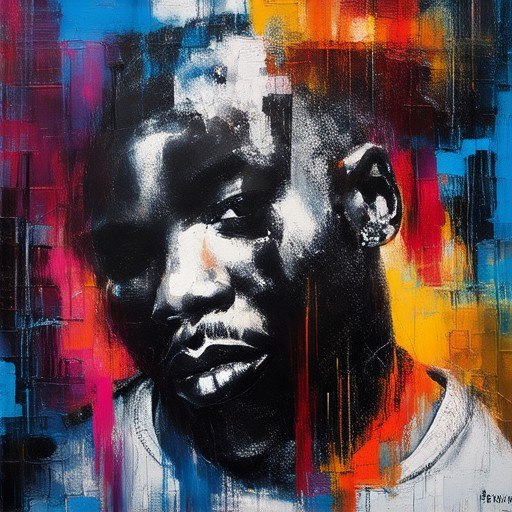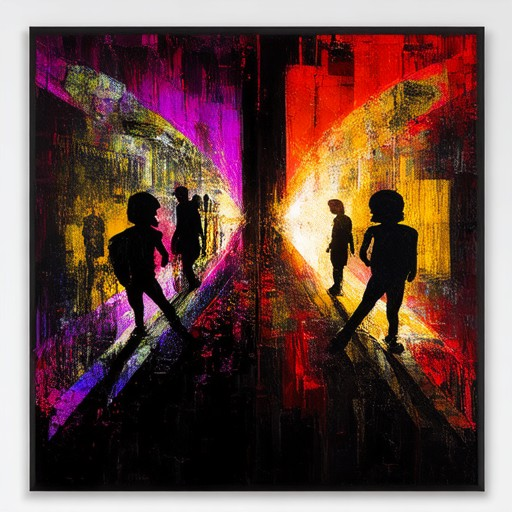Hip hop music has become a global phenomenon, influencing culture, art, and society in profound ways. While it is celebrated for its creativity and social commentary, it has also faced significant criticism and scrutiny. From debates about its impact on youth and societal norms to discussions about representation and authenticity, hip hop music criticism reflects the multifaceted nature of this art form. In this exploration, we delve into the dark side and bright lights of hip hop music criticism, examining the negative connotations, such as stereotypes of violence and crime, as well as the contributions it has made to cultural discourse. By analyzing the criticisms leveled against hip hop and the ways artists and fans have navigated these challenges, we aim to provide a nuanced perspective on its role in modern society. Whether you’re a long-time fan, a curious observer, or someone seeking to understand the broader implications of music criticism, this journey through the world of hip hop offers valuable insights into its enduring legacy and evolving identity.

Negative Connotations of Hip Hop
Hip hop culture has historically been associated with a variety of negative connotations, often stemming from stereotypes and media portrayals. These connotations can influence public perception and shape how the genre is viewed by mainstream audiences. Below are some of the primary negative connotations associated with hip hop:
Gangsterism and Criminal Activity
One of the most persistent negative connotations of hip hop is the association with gangsterism and criminal activity. Early hip hop cultures in neighborhoods like the Bronx often dealt with poverty and social struggles, leading to narratives of resilience and defiance. However, this has sometimes been interpreted as glorifying violent or antisocial behavior. While not all hip hop music reflects this, the genre has been criticized for perpetuating stereotypes of urban youth engaged in criminal activities.
Materialism and Consumerism
Hip hop culture has also been accused of promoting materialism and consumerism. From expensive clothing and jewelry to luxury cars and lifestyles depicted in music videos, hip hop has been seen as emphasizing wealth and status over more modest values. This can contribute to a culture of excess and greed, though many artists argue that this is simply a reflection of their personal success stories rather than an endorsement of materialism itself.
Gender Roles and Sexism
Another significant negative connotation is the reinforcement of traditional gender roles and sexism. In certain subgenres of hip hop, such as trap or drill music, lyrics often objectify women or promote misogynistic attitudes. This has led to criticism from feminist groups and advocates for gender equality, who argue that such portrayals perpetuate harmful stereotypes about women’s roles in society.
Violence and Aggression
While hip hop has always been a powerful outlet for social commentary and expression, it has also been criticized for glorifying violence and aggression. Lyrics that celebrate street fights, revenge, or vigilante justice can send the wrong message, particularly to younger listeners who may interpret this as acceptable behavior. Critics argue that this type of content risks normalizing violence and contributing to societal instability.
Drug Culture and Substance Abuse
Hip hop has also been associated with a culture of drug use, particularly marijuana and other substances. While many artists use cannabis as a creative outlet, the broader genre has been criticized for normalizing drug use in ways that could encourage recreational abuse. This has led to concerns about the impact of hip hop culture on public health and societal norms around substance abuse.
Impact on Public Perception
The cumulative effect of these negative connotations has shaped public perception of hip hop, often leading to stereotypes that overlook the genre’s diversity and artistic depth. While many hip hop artists actively work to challenge these narratives and promote positive messages, the initial associations can still influence how the genre is received by mainstream audiences.
- Cultural Evolution : Explore how hip hop has evolved socially and culturally over time.
- Materialism in Hip Hop : Dive deeper into the relationship between hip hop and consumer culture.
- Gender Roles in Hip Hop : Analyze the representation of gender in hip hop music and culture.
- Violence in Hip Hop : Examine the portrayal of violence in hip hop lyrics and videos.
- Drug Culture in Hip Hop : Learn about the role of substances in hip hop culture.
Problems with Hip Hop Culture
Hip hop culture, while influential and vibrant, faces several challenges that have led to criticism and debates within and outside the community. These issues span cultural, social, and economic dimensions, reflecting broader societal concerns.
1. Commercialization and Loss of Authenticity
The rise of corporate influence in hip hop has diluted its original intent. Many artists now prioritize profit over artistic expression, leading to a homogenized sound and lack of genuine storytelling.
- Commodification of culture leads to loss of authentic storytelling and innovation.
- Corporate control over music distribution marginalizes independent artists and smaller labels.
- Overemphasis on materialism and consumerism overshadows deeper social messages.
2. Gender Issues and Sexism
While female artists have made significant contributions, sexism remains a pervasive issue in the industry. Women often face unequal treatment in opportunities and recognition compared to their male counterparts.
- Sexist lyrics and imagery dominate certain genres, reinforcing gender stereotypes.
- Female artists face systemic discrimination in record deals and airplay.
- Gender-based violence and harassment are underreported due to industry norms.
3. Materialism and Consumerism
Hip hop’s emphasis on expensive lifestyles and consumer goods contributes to a culture of excess, often at the expense of more pressing social issues.
- Growing inequality gap between artists and fans exacerbates social divides.
- Overpromotion of luxury goods fosters unrealistic expectations among youth.
- Materialism distracts from addressing systemic issues like educational disparities and healthcare access.
4. Social Issues and Violence
Despite its origins as a tool for social commentary, hip hop has sometimes been associated with violence and antisocial behavior.
- Some songs glorify violence, contributing to a culture of aggression.
- Rampant gang activity and street violence are often tied to hip hop influences.
- Public perception sometimes lumps hip hop with negative stereotypes of urban communities.
5. Impact on Youth and Education
While hip hop can inspire and empower, it also raises concerns about its effects on young people, particularly regarding education and career aspirations.
- Some parents and educators worry about the influence of explicit content on youth.
- Education systems struggle to integrate hip hop’s cultural significance into curricula.
- Concerns about hip hop’s potential to hinder academic achievement persist.
Addressing These Challenges
Understanding these issues requires a nuanced perspective. While hip hop culture is not monolithic, acknowledging its complexities is essential for fostering meaningful change. Efforts to promote inclusivity, support emerging artists, and challenge systemic inequities are crucial steps toward improving the culture’s impact.
For more in-depth exploration of these topics, visit Abstract Hip Hop , a platform dedicated to uncovering the rich tapestry of hip hop culture and its evolving landscape.

What Are the Stereotypes of Hip Hop Music?
Hip hop music has long been associated with certain stereotypes, which often stem from mainstream media portrayals and cultural misrepresentations. While these stereotypes can be frustratingly persistent, it’s important to understand their origins and challenge their validity. Below are some commonly held stereotypes about hip hop music:
Fashion and Appearance
- Big Jewelry and Flashy Styles : One prevalent stereotype is the idea that hip hop artists wear excessive amounts of jewelry, including large gold chains, diamonds, and other bling. This image is often reinforced by music videos and performances where artists showcase elaborate accessories.
- Saggy Pants : Another widely recognized stereotype is the association of hip hop culture with “saggy pants,” where males frequently wear their trousers below their waistline. This look has become synonymous with urban styles.
- Urban Attire : Many people associate hip hop music with urban clothing, such as hoodies, baseball caps, and sneakers. While these styles are indeed popular in hip hop culture, they are worn by a diverse range of individuals beyond just fans of the genre.
Behavior and Lifestyle
- Streetwise Image : Hip hop has often been portrayed as representing a “streetwise” or “tough” persona. This stereotype suggests that fans of hip hop music are inherently connected to urban street life and may engage in risky behaviors.
- Materialism : There is a common belief that hip hop culture prioritizes material wealth and luxury, often reflected in the lyrics of songs that celebrate expensive lifestyles, cars, and jewelry.
- Aggressive or Provocative Behavior : Some stereotypes suggest that hip hop fans or participants are aggressive or prone to violence. This portrayal is often based on media representations of certain events or conflicts within the music industry.
Music Style and Genre
- Only Rap Music : While rap is the most dominant subgenre of hip hop, hip hop music encompasses a wide range of genres, including R&B, funk, reggae, and even classical influences. However, many people mistakenly believe that hip hop is limited to rap.
- Simple or Basic Lyrics : There is a stereotype that hip hop lyrics are simple or repetitive, focusing only on themes of money, sex, and violence. While this is true for some songs, many hip hop artists create complex and thought-provoking lyrics that touch on social issues, personal struggles, and intellectual topics.
- Lack of Diversity : Despite the diversity of its artists and the variety of its subgenres, hip hop is sometimes stereotyped as homogeneous or lacking innovation. This overlooks the constant evolution of the genre and the contributions of artists who push creative boundaries.
Societal Impact
- Negative Connotations : Hip hop has often been viewed through a lens that associates it with negative behaviors, such as crime and drug use. This stereotype ignores the positive contributions of hip hop culture to music, art, and social justice movements.
- Cultural Appropriation : Some critics argue that hip hop has been co-opted by mainstream culture, leading to its stereotypes being exploited for profit. This issue highlights the importance of preserving the authenticity of hip hop as an African American art form.
By challenging these stereotypes, we can gain a more nuanced understanding of hip hop music and its role in society. The genre’s rich history, diverse subgenres, and social significance offer a complex picture that goes far beyond simplistic stereotypes.

Is it okay for Christians to listen to rap?
As a Christian, listening to rap can be a personal choice influenced by various factors, including the lyrical content, your own spiritual walk, and how you integrate this art form into your faith journey.
Themes in Rap Music
Rap music often explores themes such as personal struggle, social justice, and urban life. While many songs may contain explicit or secular themes, there are also artists who incorporate faith and positivity into their music. It’s essential to critically evaluate the messages in the lyrics before deciding whether they align with your values.
Positive Aspects of Rap
Rap has become a powerful tool for storytelling and cultural expression. Many Christian rap artists use their platforms to share testimonies, spread hope, and address societal issues from a faith-based perspective. This can be a great way to connect with younger audiences and bridge gaps between generations.
Guidance for Listening
- Evaluate Lyrics Carefully: Pay attention to the words and themes in the songs. Look for positive messages about faith, relationships, and personal growth.
- Seek Out Christian Rap: There are many Christian rap artists and albums that focus on uplifting and faith-centered topics. Start with popular names like Lecrae, KB, or Andy Mineo.
- Be Mindful of Content: While some rap songs may contain mature or explicit language, there are also clean versions or radio edits available. Consider listening to these to ensure the content aligns with your values.
- Engage with the Message: Just like with any music genre, engage with the lyrics and reflect on how they might challenge or inspire your faith. Use it as an opportunity to grow spiritually.
Conclusion
Ultimately, whether or not you choose to listen to rap as a Christian depends on your personal beliefs and how you integrate it into your spiritual life. By being discerning and intentional about the music you consume, you can enjoy the art form while staying true to your faith.
What Do Christians Call Rap Music?
Christians commonly refer to rap music created to share the gospel or reflect Christian themes as Christian hip-hop . This genre, also known as gospel rap , Christian rap , or holy hip-hop , blends rhythmic beats with lyrical content rooted in biblical teachings and spiritual messages.
Christian hip-hop has evolved over time, starting as gospel rap and developing into a distinct subgenre within contemporary Christian music. Artists often use this format to reach younger audiences and connect with them on a personal level through relatable and faith-inspired lyrics.
- Christian Hip-Hop: A general term used to describe the genre, emphasizing its connection to Christian values and themes.
- Gospel Rap: A more specific term, often used when the music explicitly focuses on sharing the gospel message.
- Christian Rap: A term that broadly categorizes the music, highlighting its Christian identity and appeal.
- Holy Hip-Hop: A term that underscores the spiritual and sacred nature of the music, reflecting its purpose to glorify God.
Christian hip-hop has gained significant attention and a dedicated following, with many artists using it as a powerful tool for ministry and outreach. It is considered a legitimate part of Christian music, showcasing the diversity and creativity within the genre.

What Does the Bible Say About Music?
- Creation and Artistry: Music was part of God’s creative plan, as seen in Genesis where God created humans to “be fruitful and multiply” and later inspired David’s harping (1 Chronicles 16:23, 22:1).
- Worship and Praise: Music holds a central place in worship. David danced and played the harp before the Ark of God (2 Samuel 6:14), and Samuel’s offering of music moved God (1 Samuel 16:23). The Psalms emphasize singing and instrument-playing as acts of praise (Psalm 98:4-9).
- Instruction and Guidance: Moses led the Israelites with songs, including the Song of Moses (Exodus 15). God also instructed Joshua to have the people sing and praise Him after crossing the Jordan (Joshua 24:11-12).
- Heart Melody: Ecclesiastes 3:21 refers to music as a gift from God meant to be enjoyed and uplift the spirit. It reflects the joy and beauty He created.
- The Role in the Church: The New Testament encourages singing psalms, hymns, and spiritual songs in the church (Ephesians 5:19, Colossians 3:16). Early Christians used music to express faith and teach doctrine.
- Caution and Balance: While not forbidding music, the Bible warns against using it for idolatrous purposes or strange sounds (Deuteronomy 12:28, 1 Corinthians 10:31). It’s important to use music wisely and in accordance with God’s Word.
Overall, the Bible affirms music’s role in celebrating God, fostering community, and enriching personal devotion.





0 Comments